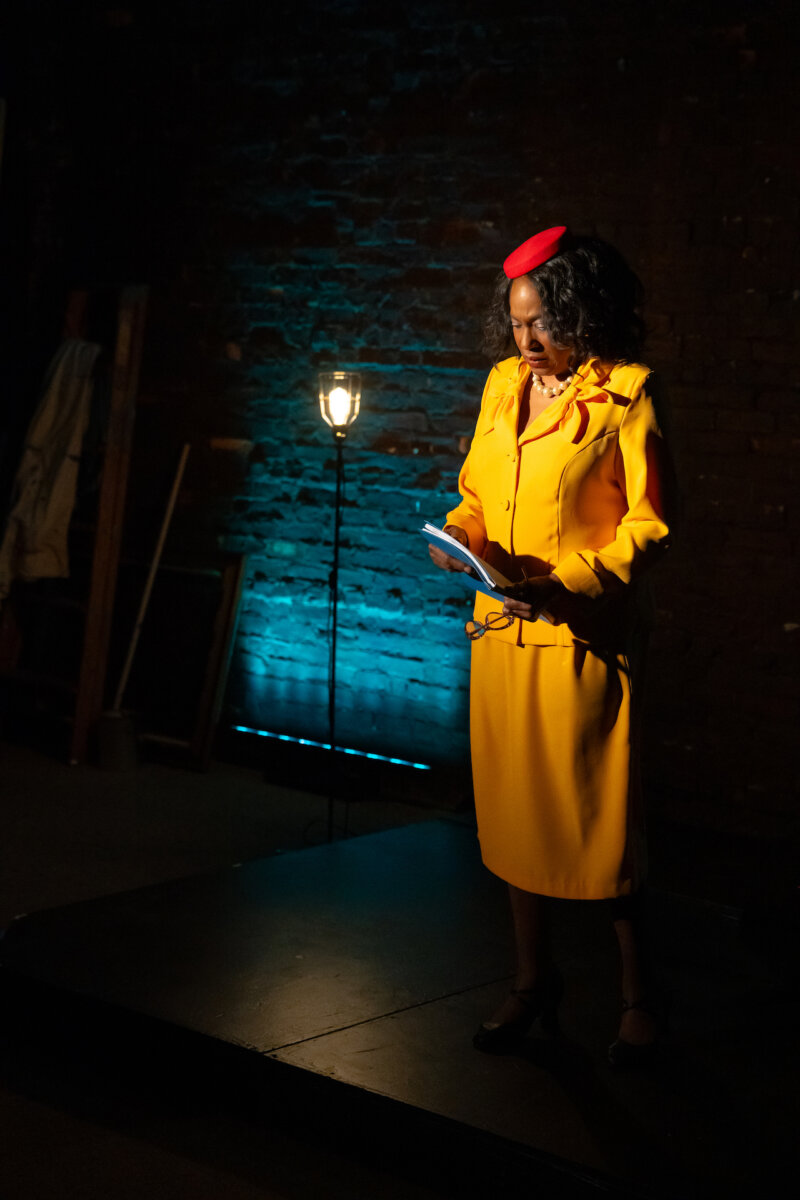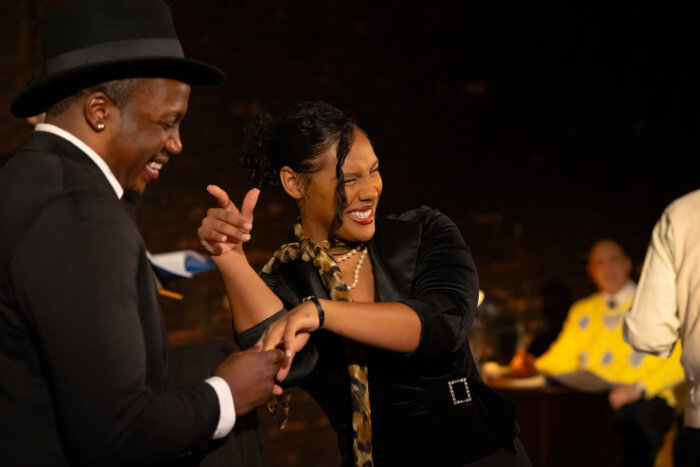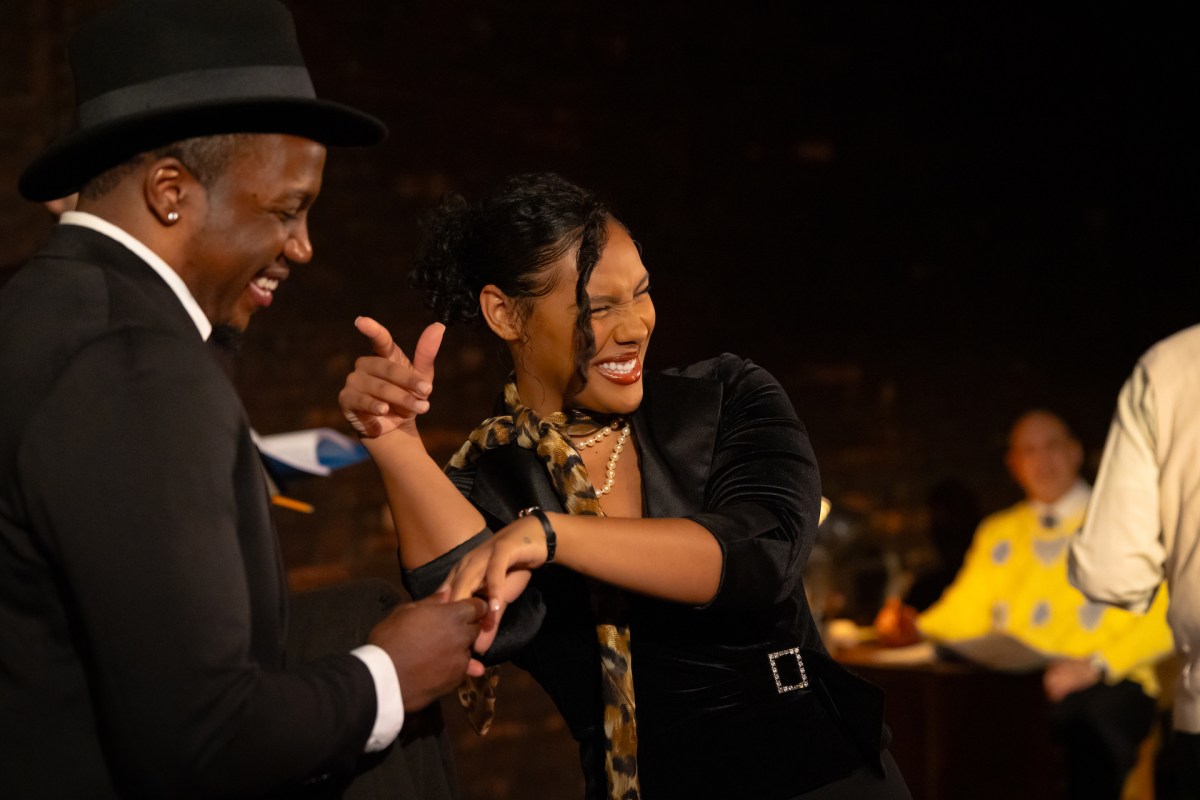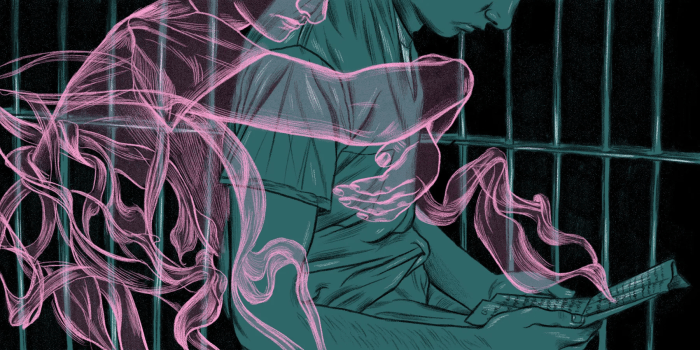
“Trouble in Mind,” runs until April 21, 2024, at the intimate BAACA Center in Lindenhurst. This drama was written almost 70 years ago by Alice Childress, the first Black woman to have a play professionally produced in the United States. Childress directed the first production of “Trouble in Mind” at the Greenwich Mews Theatre in New York City and received an Obie Award in 1956 for Best Original Off-Broadway production, making her the first Black woman to receive that prestigious award. This award-winning play did not have a Broadway production until 2021, 27 years after Childress’s death.
EastLine Theatre is one of the boldest, bravest theatre companies on Long Island, unafraid to tackle the big issues in their collective effort to raise the consciousness of their audiences as is reflected in this latest production.
The play’s title, “Trouble in Mind,” comes from a 1924 Vaudeville blues song by Richard M. Jones, which became a popular hit in 1952 after Dinah Washington recorded it. Blues is a secular African American musical genre that originated in the South to express the mournfulness of oppression and highlight the racial inequity in America. Although the blues song “Trouble in Mind” has a somber and melancholic mood, a ray of hope still shines through, reminding us that a better future may be just around the corner.
Under Nicole Savin’s astute direction, this riveting production held the audience spellbound throughout. The story revolves around a Black stage actress, Wiletta Mayer, brilliantly portrayed by Sheilah Barksdale, and her volatile relationship with a well-intentioned but often misguided and condescending white director. Harrison Vogel gave an award-worthy performance as Al Manners, the Broadway director with plenty of troubles of his own, including an acrimonious divorce and a seven-year-old son who already needs a psychiatrist. Early in the play, Manners shows his nasty, arrogant side in his dealings with Eddie Fenton, his stage manager, played by James Santora. Santora gave a nuanced performance as a hard-working man who lives in a cold-water walk-up and struggles to maintain his dignity in a hostile work environment.
Childress used metadrama or a play-within-a-play as part of the plot structure. “Trouble in Mind” takes place in 1957 in a New York theatre, where the cast and crew rehearse for an upcoming Broadway play, “Chaos in Belleville.” This metadrama is set down South during the Jim Crow era and revolves around a young Black man determined to vote and the dire consequences of his actions. Although the play has an anti-lynching theme, a white playwright wrote it, and many of its roles are stereotypical. The protagonist, Wiletta, finally stands up for herself and rages about how the play does not ring true. Barksdale’s passionate delivery of Wiletta’s monologue, expressing how sick and tired she is of playing maids and mammy parts, was one of the highlights of the evening. Barksdale also has strong vocals, which she showcased during her stellar acapella performance of the mournful dirge, “Come and go with me to that land where I’m bound, No confusion in that land …”
Genesis Rosado was outstanding as Millie Davis, a thirty-five-year-old married Black woman who does not have to work but chooses to be an actress because it is her passion, although she is often frustrated by the stereotypical roles she performs.
Sheldon Forrester is an aging Black actor and aspiring songwriter who tries to keep the peace and not rock the boat because he desperately needs the money from this acting job. A polished and highly professional actor, Van Whitaker stepped in at the last minute to take on this challenging role. A memorable onstage moment happened when Forrester told the cast members about a real-life lynching he witnessed growing up.
Howard Heller brought his A-game to the part of Henry, a 78-year-old theater doorman. The onstage chemistry between Heller and Barksdale was one of the show’s high points, and their back-and-forth banter garnered some of the biggest laughs of the evening.
This play features multi-generational characters, and Isaiah Joseph as John Nevins, a young, naïve Black actor thrilled to be making his Broadway debut, and Kate Jergensen as Judy Sears, a white actress and recent Yale School of Drama graduate, gave noteworthy performances.
With his fidgety body movements and uptight facial expressions, Brad Hamler delivered a notable performance as Bill 0’Wray, a highly neurotic, not very talented actor.
The authentic period costumes by Lyn Adler-Ciorciari and her talented assistant, Wendy Pollak Grimm, greatly added to the overall success of this production. I loved the men’s three-piece suits with the requisite fedoras and the women’s fifties-style chic outfits.
This award-winning play hits hard as it explores the subtle and not-so-subtle ways sexism, racism, and ageism permeate our world. The heartrending ending has Wiletta, a Black woman still in the prime of her life, standing proudly in the spotlight, reciting Psalm 133. Henry, a white man who knows he is “just about through with this life,” listens respectfully to this moving psalm with its message of how good it is for people to dwell in unity. On this solemn yet hopeful note, the play closes, leaving the audience with an inner knowing that compassion, kindness, and understanding are not only possible but probable in the not-too-distant future.

“Trouble in Mind” is a timeless classic, well-crafted, thought-provoking, and thoroughly entertaining. Performances are at the BACCA Center in Lindenhurst and run through April 21, 2024. Tickets are $25 and can be purchased at eastline.ludus.com. More information is available at eastlinetheatre.org or by calling 516-749-5047. Content Warning: The show deals with racism, misogyny, racist language, and outdated stereotypes.


























